|
||||||||
|
|
|
2018-08-16 ArtNo.46342
◆Review:The baptism of the Holy Spirit (Armageddon)
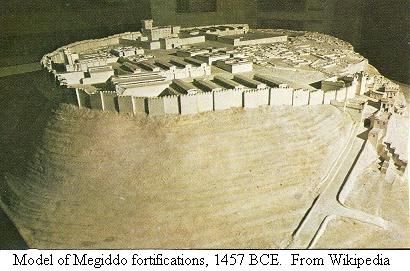 Armageddon is a place name that is mentioned only once (Revelation 16:16) through the New and the Old Testaments as the heavenly army led by the second coming Jesus Christ will destroy those who oppose the authority of God in a literal end-of-the-world final confrontation. (Revelation 19:11-16) The word 'Armageddon' is transliterated to Greek from Hebrew 'Har-Megiddo' and means Mount Megiddo. However the name refers to a fortification made by King Ahab (869-850 BC) that dominated the Plain of Jezreel. It is an old battlefield where many battles have been fought since ancient times, but it might be too narrow for the end-of-the-world final confrontation. ○Rebuilding of the Faith of Second Coming 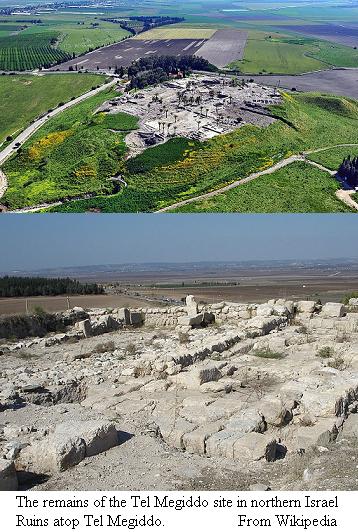 According to tradition, John, who had only survived until post Jewish war (A.D. 66-74) era among the Twelve Apostles, had received a vision of Jesus in a cave when he had been exiled to the island of Patmos in the Aegean Sea and wrote the Book of Revelation in Ephesus based on the vision. In the vision, Jesus ordered John to convey his revelation to the seven churches of the Asia Minor. A tidal wave of the church movement, which had occurred spontaneously across the Mediterranean coast, finally reached Jerusalem, with the hope that the Savior would come soon based on Daniel's 'Seventy Weeks prophecy' in the Old Testament. Then the Jerusalem Church was established barely one and half month after the Crucifixion, as an umbrella organization supervising the church movement of about four million overseas gentile believers and about eight hundred thousand followers of different Jewish factions in the country. At least high priest Caiaphas must have thought so, who had testified at a meeting of the Sanhedrin; "You know nothing at all! You do not realize that it is better for you that one man die for the people than that the whole nation perish. He will die for the Jewish nation, and not only for the nation but also for the scattered children of God, to bring them together and make them one." (John 11:49-52) It seems to have been hoped that the Savior's first coming would be at around AD 33-34 and the kingdom of God would be realized in this world shortly thereafter. The dream of Caiaphas also seems to have been believed to be realized instantly. But both the temple and the city of Jerusalem were destroyed by the Roman army during the first and the second Jewish Wars which happened in AD 66 and in AD 70 respectively. The expectation was betrayed by completeness. It seems that for this reason, 'the Book of Revelation' was written as a sequel of 'Daniel's prophecy' and tried to rebuild the faith of 'Second Coming.' ○The second coming of Christ who is the Alpha and the Omega 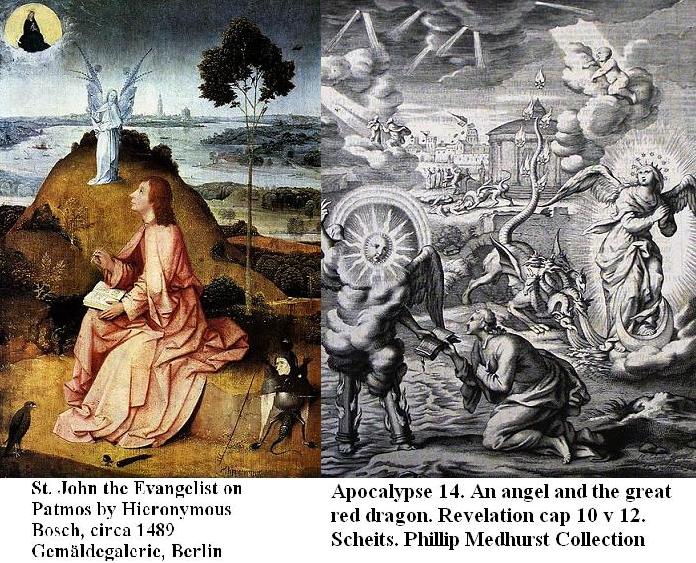 The author of the Book of Revelation suggests that the kingdom of God would not be realized so easily and even if the Kingdom appears, the evil spirits will be unleashed again after a thousand years, and once again this world will transform to the inferno. However, the author encourages readers of the book that ultimately the permanent Kingdom of God will be realized and one, who believes this new revelation and keeps the correct faith, will be resurrected with eternal life at the last day, even if he is martyred. Therefore, "Let the one who does wrong continue to do wrong; let the vile person continue to be vile; let the one who does right continue to do right; and let the holy person continue to be holy. Look, I am coming soon! My reward is with me, and I will give to each person according to what they have done. I am the Alpha and the Omega, the First and the Last, the Beginning and the End." (Revelation 22:11-13) While Christ in this book implies that the last day will not come soon, but he also says repeatedly, "I will come soon." As it means that if we synchronize with Christ who is the Alpha and the Omega, we can obtain eternal life at once without need to wait the last day and may have the full measure of his joy within us. (John 17:13) But the prophecy of the Apocalypse which links the "Second Coming of the Messiah" to the "Final Battle of the world" is walking alone contrary to the intention of the author and has brought forth several new religions either related or unrelated to Christianity and also became the remote causes of the first and the second world wars. Shoko Asahara (麻原彰晃), born Chizuo Matsumoto (松本智津夫), the founder of Japanese cult group Aum Shinrikyo, was also devoted to the Apocalypse and went to France to see Nostradamus expert Michel Chomarat at Lyon 's municipal library to gain new insights into divination. ○Another reason for the Apocalypse was written 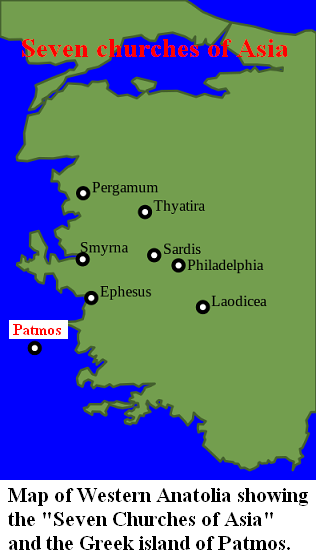 While the Apocalypse is said to be the revelation which Jesus ordered John to convey to the seven churches of Pergamum, Thyatira, Smyrna, Sardis, Philadelphia, Ephesus and Laodicea in the Asia Minor. Why did Jesus reveal only to these seven churches despite there were numerous other churches in cities of Greece and Italy at that time? The book picks up the practices of the Nicolaitans, who seems to have been active in two of the seven churches in the Asia Minor, and condemns that their practices are abominable immorality as is Idolatry. The book does not indicate specifically what practices the Nicolaitans did. However, there are following descriptions in the First Epistle of John, which is said to have written in the almost same period with the Book of Revelation; "This is how you can recognize the Spirit of God: Every spirit that acknowledges that Jesus Christ has come in the flesh is from God, but every spirit that does not acknowledge Jesus is not from God. This is the spirit of the antichrist, which you have heard is coming and even now is already in the world." (1 John 4:2-3) In the Second Epistle of John too, we can see following descriptions; "I say this because many deceivers, who do not acknowledge Jesus Christ as coming in the flesh, have gone out into the world. Any such person is the deceiver and the antichrist." (2 John 7) The author also says, "If anyone comes to you and does not bring this teaching, do not take them into your house or welcome them. Anyone who welcomes them shares in their wicked work." (2 John 1:10-11) Interestingly, Paul says in the Second Epistle to the Corinthians, "Wherefore we henceforth know no man after the flesh: even though we have known Christ after the flesh, yet now we know him so no more." (2 Co 5:16) He also says in the Epistle to the Galatians, "The gospel which was preached of me is not after man. For I neither received it of man (lifetime Jesus himself), neither was I taught it, but by the revelation of Jesus Christ (resurrected within Paul himself) (Ga 1:11-12)." And he affirms, "whatsoever they (pillars of Jerusalem Church, such as James the Less, Peter and John) were, it makes no matter to me." (Ga 2:6) Perhaps, the authors of the Apocalypse, the First Epistle of John and the Second Epistle of John seem to have felt a threat from the rise of some group who made little account of the words which had been made by Jesus in his lifetime and also despised the personal pupil of Jesus led by the Twelve and to have asked the 7 churches in the Asia Minor to sever relations with this kind of believers. ○The path to YunYan is going to be cut off. 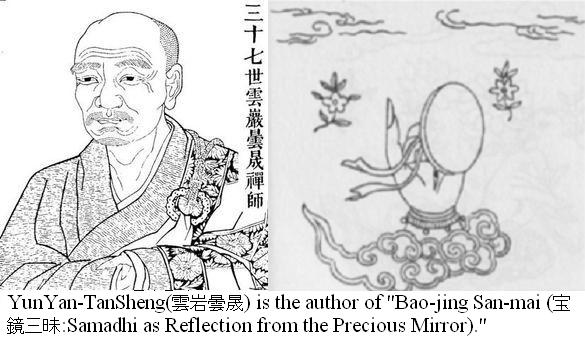 Time passed to the late Tang Dynasty China, DongShan-LiangJie (洞山良价:807-869), the founder of the CaoDong School (曹洞宗) of Zen Buddhism got sick. He sent a young monk to inform YunJu-DaoYing(雲居道膺:830-902), the head of his disciples. He told the monk that if YunJu should ask for his words, he should tell him this: "The path to YunYan (雲岩) is going to be cut off." DongShan also warned his messenger that while speaking to YunJu he should stand far away from him, so that YunJu would not strike him. However, when monk took the message to YunJu, he was struck even before finishing his words. The monk fell silent. YunYan is the master of DongShan-LiangJie and his full name is YunYan-TanSheng(雲岩曇晟:782-841) and is the author of "Bao-jing San-mai (宝鏡三昧:Samadhi as Reflection from the Precious Mirror)," which has been handed down from generation to generation in the CaoDong School. Regarding Zen master YunJu-DaoYing, Dogen Zenji(道元禅師:1200-1253), the founder of the Japanese Soto Zen School(曹洞宗), is commenting in the 'way of the Buddha (仏道)' section of his 'Shobogenzo (正法眼蔵)' as follows; "The name 'CaoDong sect (曹洞宗)' may have derived from someone adding CaoShan (曹山)'s name to DongShan(洞山)'s. If this is so, then YunJu and TongAn(同安) should also have been included. YunJu was a guiding Master among ordinary people, as well as among those in loftier positions, and was even more revered than CaoShan. When it comes to this name 'CaoDong', clearly some stinking skin bag in an offshoot lineage who fancied himself the equal of DongShan devised the name 'CaoDong sect.' While it is convincing that Dogen Zenji, who belonged to dharma lineage of YunJu-DaoYing and his disciple TongAn-DaoPi(同安道丕:?-905), more revered YunJu-DaoYing than CaoShan-BenJi (曹山本寂:840-901), but it seems to be somewhat improper to say that the name 'CaoDong,' clearly some stinking skin bag in an offshoot lineage who fancied himself the equal of DongShan devised the name 'CaoDong sect.' By the way, there are several mysterious points in the series of interactions among the three people, DongShan, the young monk and YunJu. First of all, why did DongShan send such message, saying "The path to YunYan is going to be cut off"? Secondly, DongShan knew that YunJu would beat down the messenger. Thirdly why should the messenger be beaten down? Fourthly, why was the messenger beaten down even though he had known in advance to be beaten and why did not he say a single word? One possible answer is that the young monk was CaoShan-BenJi himself. It means that DongShan had already decided to make CaoShan his successor at that point. In other words, DongShan had decided to entrust him with the position of the High Priest of DongShan Temple at XinFengShan (Current TaiPing Township, YiFeng Prefecture, Jiangxi Province) after his death. And YunJu also knew about it. As of DongShan's death in 869 AD, it is believed that DongShan was 62 years old, YunJu was 39, and CaoShan was 29. As a successor, it is no wonder that CaoShan, who was younger than YunJu, was seen to be more suitable for long term. (In fact, it seems that CaoShan died one year earlier than YunJu.) However, CaoShan still might have been identified the lack of capability to undertake this role. Thus, DongShan not only ordered CaoShan to tell YunJu "The path to YunYan is going to be cut off," but also said to CaoShan, "If you tell YunJu this, he would beat you up. So you must be prepared." As such, CaoShan could not escape anywhere. If he escaped, he would have abandoned himself to become a successor of DongShan. So he seems to have left himself to be beaten and have not said a single word. ○Fictitious name and Dharma title 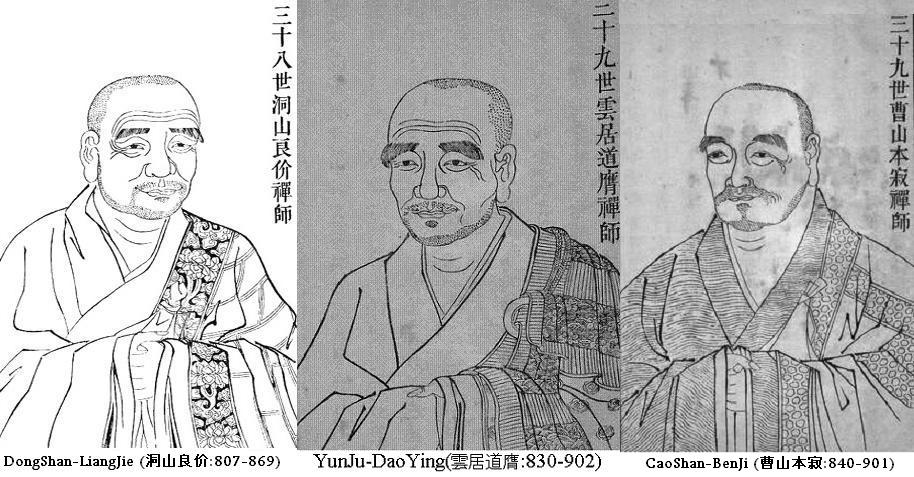 Now, DongShan, who realized that the day of reckoning for him was coming, one day delivered a sermon to the congregation and asked, "I have made a fictitious name in this world. Who will remove it for me?" In this world, individual events and things perceived by men through their five senses are merely provisional names given to each process of changes. Thus they are called the temporary name. Indian Buddhist philosopher Nagarjuna (150?-250?) described this theory in his book "The Treatise on the Middle Way" and stated: "Dharmas (phenomena) are born of causes and conditions. I say they are thus empty. They are also called the temporary name, and that is also the truth of the Middle Way." During Wei, Jin, and Southern and Northern Dynasties period (220-589 CE) of China, Hui-wen (550-577), the founder of Tiantai Buddhism, who read this verse and at once perceived the triple truth, namely, the truth of emptiness, the truth of temporariness and the truth of mean, explained as follows. These three - emptiness, temporariness and mean - penetrate one another and are found perfectly harmonized and united. One should not consider the three truths as separate but as the perfectly harmonious three fold truth. Hence DongShan said, "If I die, 'DongShan-LiangJie' will be merely fictitious name which has no substance. If it will be left alone, it will walk alone and may create some problems for the future generations. Who will remove it for me?" In this regard, Japan's leading Zen monk, Ikkyu Sojun (一休宗純: 1394-1481) composed following comic tanka poem, "Shakamuni, That mischievous creature, Having appeared in the world, Misled, alas, How many people! (Shaka to iu itazura mono ga yo ni idete ohku no hito wo mayowasuru kana)" The disciples present looked at each other in a timid manner and none of them responded. But after a while a novice stepped forward and said: "Please tell us your Dharma title." He meant "If 'DongShan LiangJie' is temporary name, then can you tell me Dharma title which symbolizes the absolute truth transcending space and time." Then DongShan answered, "Attaboy! My fictitious name has already faded away." This novice also seems to have been CaoShan. If so, it is agreeable that DongShan was in a good mood. And DongShan added, "After my leaving this shell, where will you go to see me?" However, all the disciples were silent. ○In living to work hard; in death to be at rest 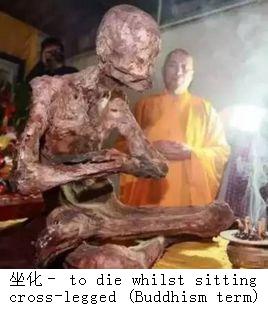 One day, in the third month of the tenth year of the XianTong (咸通) period (March 869 AD), Master DongShan LiangJie, having had his head shaved and having put on his robe, ordered the gong struck. He was going to pass away by sitting solemnly. In the meantime all his disciples were crying and deeply moved. After a while the Master suddenly opened his eyes and stood up, and spoke to the assembly: "Those who are Buddhists should not attach themselves to externalities. This is the real self-cultivation. In living they work hard; in death they are at rest. Why should there be any grief?" Thus a lesson was given to those who clung to passion. However, all his disciples were still yearning for him. Seven days passed and on the last day after completing memorial service ritual the Master said to them: "When a Buddhist behaves, he should not be heedless. What a noise and disturbance you made, when I started my departure!" He might feel that it was too exalted farewell. So he said to them, "Too noisy, That's enough. I am difficult to die." And he ordered them "Behave like Zen monks!" On the eighth day after bathing he sat still and passed away. His age was sixty-three. It was forty-two years after he was ordained. His posthumous name bestowed by the Court was Great Master WuBen (悟本大師), and his pagoda was entitled HuiJue (慧覚). <To be continued> 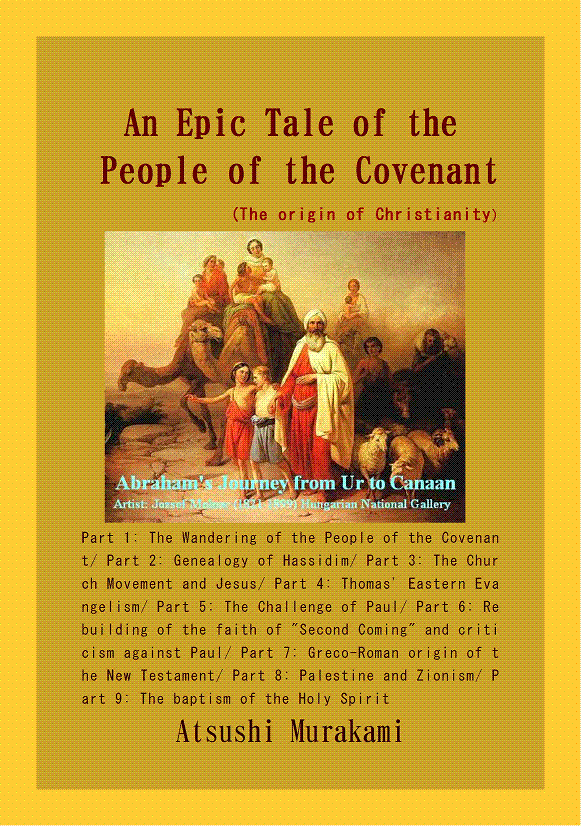 ○What is "Baptism with The Holy Spirit"? According to the dialectic of the Gospel of John, 【Thesis】"A man can possess eternal life through accepting testimony of the Son of man and being baptized by him." (John 5:24) 【Anti-thesis】But "The one who comes from the earth cannot accept the testimony by one from heaven." (John 3:32) How then can a man possess eternal life? 【Synthesis】"If you want to be baptized with the Holy Spirit, you can just go back to the word which was with God in the beginning (John 1:1) and certify that God is truthful. (John 3:33)" When he said, "You are Huichao," Zen Master Fayan thrusted vivid Self in Huichao in front of his eyes. Purchase here [Reference] ○《Jingde Chuandeng-lu, Part 15》 The Master announced his departure for Nirvana涅槃 and sent a monk to inform Yiin-chii. He told the monk that if Yiin-chii should ask for his words, he should tell him this: "The path to Yiin-yen is going to be cut off." The Master also warned his messenger that while speaking to Yiin-chii he should stand far away from him, so that Yiin-chii would not strike him. However, when monk took the message to Yiin-chii, he was struck even before finishing his words. The monk fell silent. When he was going to die, the Master told the assembly: "I have made a useless name in this world. Who will remove it for me?" None of his disciples made an answer, but a novice stepped forward and said: "Please tell us your Dharma title." The Master answered: "My title has already faded away." The Master again said: "After my leaving this shell, where will you go to see me?" All the disciples were silent. One day, in the third month of the tenth year of the Hsien-t'ung咸通 period, Master Tung-shan Liang-chieh, having had his head shaved and having put on his robe, ordered the gong struck. He was going to pass away by sitting solemnly. In the meantime all his disciples were crying and deeply moved. After a while the Master suddenly opened his eyes and stood up, and spoke to the assembly: "Those who are Buddhists should not attach themselves to externalities. This is the real self-cultivation. In living they work hard; in death they are at rest. Why should there be any grief?" Thereupon the Master ordered the head monk in the temple to prepare "offerings of food to ignorance" for every one in the monastery. Thus a lesson was given to those who clung to passion. However, all his disciples were still yearning for him. Seven days passed and on the last day when dinner was served, the Master shared it with his disciples. After they had finished their dinner, the Master said to them: "When a Buddhist behaves, he should not be heedless. What a noise and disturbance you made, when I started my departure!" On the eighth day after bathing he sat still and passed away. His age was sixty-three. It was forty-two years after he was ordained. His posthumous name bestowed by the Court was Great Master Wu-pen悟本, and his pagoda was entitled Hui-chiieh慧覚.<Translated by Mr. Chung-yuan Chang (1907-1988), Professor of Philosophy at the University of Hawaii at Manoa.> ○One world:The aim of SEAnews ◆Recruitment of Ad-SEAnews CanvassersYour Comments / UnsubscribeSEAnews TwitterSEAnews MessengerSEAnewsFacebookSEAnewsGoogleSEAnews eBookstoreSEAnews eBookstore(GoogleJ)SEAnews world circulation |
|
[Your Comments / Unsubscribe]/[您的意见/退订]/[ご意見/配信停止]
Please do not directly reply to the e-mail address which is used for delivering the newsletter. 请别用递送新闻的邮件地址而直接回信。 メールをお届けした送信専用アドレスには返信しないで下さい。 |